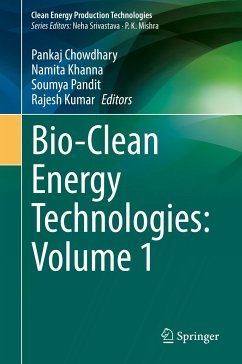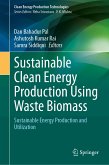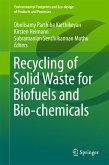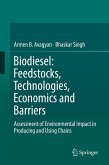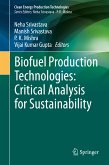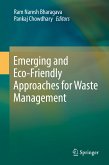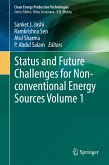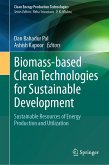Dr. Pankaj Chowdhary Dr. Chowdhary is President, Society for Green Environment (SGE) at New Delhi. Currently he is working as Postdoctoral Fellow in Indian Institute of Toxicology Research. He received his B.Sc. in Zoology, Botany and Chemistry from St. Andrews College, Gorakhpur, Uttar Pradesh and Post graduation degree in Biotechnology from Deen Dayal Upadhyaya Gorakhpur University Uttar Pradesh (UP), India. Afterward, he obtained his Ph.D. in the area of Microbiology from Department of Environmental Microbiology at Babasaheb Bhimrao Ambedkar University (A Central University), Lucknow, Uttar Pradesh, India. His main research areas are Microbial Biotechnology, Biodegradation and Bioremediation of Environmental contaminants in Industrial wastewaters, and Metagenomics. He has edited five International Books. Besides, he has also authored two international books. He has published more than seventy (70) research publications including research/review papers in national and international peer reviewed journals of high impact factor published by Springer, Elsevier, Royal Society of Chemistry (RSC), Taylor & Francis Group and Frontiers. He has also published many National and International Book chapters & Magazine articles on the biodegradation and bioremediation of industrial pollutants. He has been also served as a potential reviewer for various national and international journals in his respective areas of the research. He is a life member of the "Association of Microbiologists of India (AMI)", " Indian Science Congress Association (ISCA) Kolkata, India" and The Biotech Research Society, India (BRSI). Dr. Namita Khanna Dr. Khanna completed her graduate studies from Indian Institute of Technology Kharagpur. Thereafter she worked as Post-Doctoral Fellow in Uppsala University, Sweden. Currently, she works as an Assistant Professor inthe Department of Biotechnology at Birla Institute of Technology and Sciences Pilani, Dubai Campus. Her research interests include harnessing solar energy towards the production of synthetic biofuelsand biodrugs. She has more than 27 publications to her credit in peer reviewed journals and edited books and co-authored one book on fundamentals of biohydrogen production technologies. Presently she also serves as a Review and Guest Editor in Frontiers in Energy Research as well as a Guest Editor for Frontiers in Bioengineering and Biotechnology. Dr. Soumya Panidit Dr. Pandit completed her graduate studies from Indian Institute of Technology Kharagpur. Thereafter he worked as Post-Doctoral Fellow in Ben Gurion University of the Negev, Israel. Currently, she works as an Assistant Professor in the Department of Life Sciences at Sharda University, Delhi NCR. His research interests include microbial electrochemical system for bioenergy harvesting, bacterial biofilm study, nanomaterial synthesis and application in biofuel generation. He has more than 39 publications to her credit in peer reviewed journals, 40 book chapters, 1 edited and 1 text book on Industrial Biotechnology. He is serving as an editorial board member in SCIREA Journal of Biology, the Journal of Korean Society of Environmental Engineers. Prof. Rajesh Kumar, a graduate and Post graduate in Microbiology from Nagpur University and doctorate in Microbiology from prestigious Indian Agricultural Research Institute, New Delhi is working as a Professor and Co-ordinator Integrated B.Sc.-M.Sc. Basic Science in the Department of Environmental Microbiology at Babasaheb Bhimrao Ambedkar University, A Central University, Lucknow, India. Before joining at Lucknow, he served at GB Pant University of Agriculture & Technology, Pantnagar, India. He has held various positions viz. Head of the Department, Co-ordinator Nanoscience and Nanotechnology, servedas Chairmanof various bodies like Research Committee, Board for P.G. Studies and as member, School Board, Research Degree Committee of University. He has been teaching various PG courses in Microbiology, fundamental and applied aspect courses and has been awarded the prestigious Indian National Science Academy Visiting Fellowship, Senior Research Fellowship and Young Scientist Fellowship. He is a Life Member of various scientific bodies. Guided a good number of researchers, Post Docs who are well placed in various organizations and Universities. His research interest includes plant-microbe interaction, abiotic stress management, immuno and nanosensor development for environmental monitoring, microbial biotechnology. He has published numerous research and review articles in reputed national and international journal, authored two booksunder Springer umbrella. He has presented numerous papers at conferences, is a reviewer of many reputed international journals of Elsevier, Springer and Wiley publication, and has been awarded Innovator of the year for his work on nanomaterial synthesis using reverse micelle process at Kasetsart University, Bangkok, Thailand.
1 Brief introduction to first, second and third generation of biofuels.- 2 Renewable biofuel sources as bioclean energy potential and challenges.- 3 Metabolic rewiring and cultivation optimization for photosynthetic biofule production in cynobacteria.- 4 Role of enzymes in biofuel production: recent developments and challenges.- 5 Engineered strains in the development of the biofuel industry.- 6 Genetic Engineering: an optimism for sustainable biofuel production.- 7 Algal-based biofuel production; opportunities, challenges, and prospects.- 8 SAPO-34 zeolite and membranes for biogas purification.- 9 Nanotechnology based biofuel production.- 10 Advancement of Nanoparticles in Gaseous Biofuel Production.- 11 Nano catalyzed transesterification of thumba oil for biodiesel production using hydrodynamic cavitation.- 12 Nanotechnology: Use of conventional methods in biofuel production.- 13 An insight into nanomaterials andits used in biofuel production.- 14 An overview of nanostructures and its application in biofuel production.- 15 Production of biodiesel from the bacterial lipid of sewage sludge: Versatile future of bioenergy in developing countries.- 16 Environmental Impact and Economic Benefits of Biofuel Production.- 17 Advanced anaerobic processing of bioresources for production of clean and sustainable gaseous biofuels.- 18 Techno economic analysis of lignocellulosic based biofuels: an approach towards a practical biorefinery.

